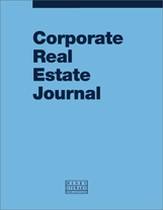Avoiding disastrous data-based decisions: The secret to meaningful workplace insights
Abstract
In a complex, ambiguous and uncertain business environment, the use of qualitative and quantitative data to inform strategic policy, decisions and actions is essential. Data increasingly plays a critical role in shaping workplace decisions that carry significant fiscal and team performance implications. Access to more data and processing power, faster and cheaper analytical software and the promise of AI should improve workplace decisions; however, data quantity and quality, time pressures and short attention spans frequently result in overconfidence, solution bias or paralysis and anxiety. This paper describes the key elements of effective decision making, including understanding the purpose, asking the right questions, validating and interrogating data to prosecute the problem and using artificial intelligence to complement human expertise, experience, resourcefulness and ingenuity. Different approaches and associated risks and opportunities in data-driven decision making are illustrated through a detailed corporate case study, insights from a research thesis and professional anecdotes. Practical recommendations are included to prompt corporate real estate (CRE) leaders to clarify their needs and cross-examine relevant sources of information when making important decisions. This paper concludes that in the current environment, critical and contextual thinking are increasingly important CRE capabilities.
The full article is available to subscribers to the journal.
Author's Biography
Caroline M. Burns , PhD, is a board director, entrepreneur, conference chair and facilitator and independent adviser to global corporate clients and has spent more than half of her 30-year career in Asia, navigating Western and Asian business landscapes for Fortune 500 and multinational clients in banking and financial services, pharmaceutical, technology and diversified operations. This journey has provided her with a nuanced perspective on balancing risk, innovation, efficiency and adaptability in dynamic environments. As a recognised future of work thought leader, she regularly researches and publishes on issues of strategic importance to boards and the c-suite in building competitive advantage and resilience within their organisations and their people while navigating a volatile, uncertain, complex and ambiguous (VUCA) environment. Dr Burns is the Director and an adviser to private company boards and non-profit professional association boards in Australia, Singapore and US. She emphasises collaboration, critical thinking, evidence-based decision making and a commitment to addressing unique challenges with tailored solutions. For further information, visit her website: www.carolinemburns.com and newsletter, The Regenerative Edge.
